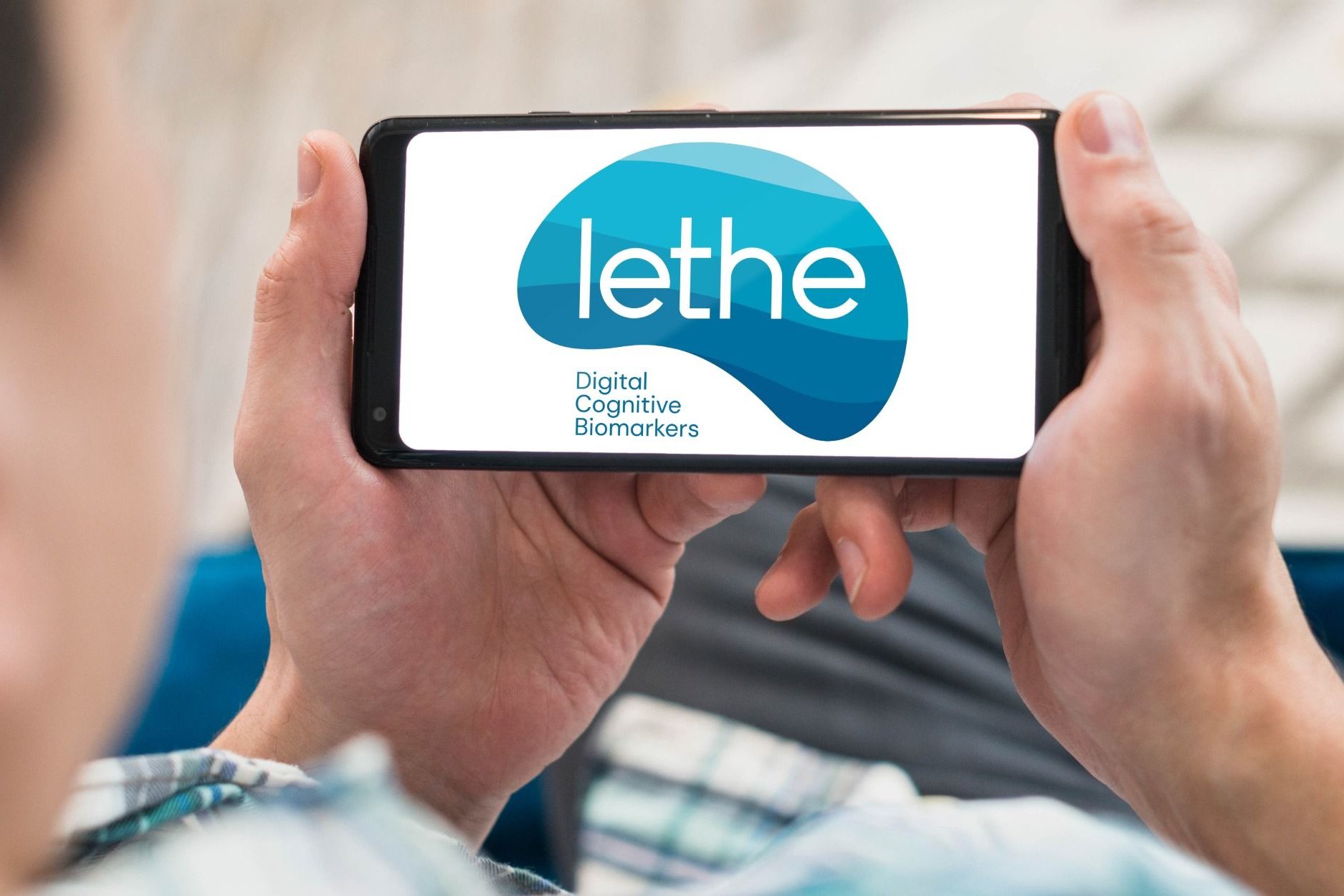
(Vienna, 22-03-2023) Since 2021, the eHealth Institute at FH JOANNEUM has been coordinating the EU Horizon 2020 project LETHE, which is endowed with six million euros. Based on a prediction model developed by the Institute about the individual risk of dementia and an app, a globally unique two-year pilot study started at the Medical University of Vienna at the end of January 2023.
As part of LETHE, 15 partner organisations from nine EU countries are developing a personalised prediction and intervention model to identify the first signs of cognitive deterioration and associated risk factors for dementia in older people. Sten Hanke, LETHE project manager at the eHealth Institute of FH JOANNEUM: "In LETHE, clinical data, digital intervention data and also medication data are to be used to determine the risk of dementia at the individual level or to predict its progressive development. These models, trained using machine learning methods, will then enable targeted, rapid and digital intervention to prevent the progression of the disease or delay the first symptoms.
Prediction model developed and pilot study launched at MedUni Vienna
Based on the evaluation of 12,000 existing data records, the eHealth Institute of FH JOANNEUM developed a data-based prediction model. Sten Hanke: "This model is being used to calculate the risk profile for dementia later in life as part of a pilot study: The study participants receive their personal visualised risk profile for a possibly later dementia diagnosis in the LETHE partner clinics, which was calculated using artificial intelligence. The prediction model is based on various clinical and lifestyle factors such as diet or regular exercise, which have emerged from the Big Data analysis."
The prediction model has been tested since January 2023 as part of a clinical pilot study at four European hospitals with a total of 160 people. In Austria, the University Department of Neurology at the Medical University of Vienna is conducting the study with 40 patients. Helena Untersteiner from the Department of Neurology at the Medical University of Vienna: "The LETHE project is very popular with the target population. Many people are concerned about developing dementia in old age. Therefore, many are concerned about taking preventive action by improving their lifestyle and supporting dementia research." The study will last two years and, at the end of the study, it will be evaluated whether the predictions calculated using machine learning are accurate. Sten Hanke: "In the prediction model, we see which lifestyle categories contribute to an increased risk. Lifestyle is a modifiable factor and we naturally give the study participants incentives to change negative habits at the beginning and during the study."
eHealth Institute’s own LETHE app and Clinical Trial Management System
Students and researchers from the eHealth Institute at FH JOANNEUM developed a clinical trial management system and an exclusive app for the pilot study in order to be able to influence patients' lifestyles, among other things. Sten Hanke: "The app development took approximately one year and was a joint project. Students from "Information Design" at FH JOANNEUM designed the app and eHealth students took over the implementation. We anchor EU projects such as LETHE very strongly in teaching at FH JOANNEUM, and several Bachelor's and Master's theses are currently docked onto such research projects."
Unique pilot study worldwide
The LETHE app works in combination with a wearable Fitbit, a plastic wristband that records certain data, such as the quality of sleep of the study participants. The app provides them with virtual coaching, diet and exercise plans, but also motivational messages from the accompanying clinic staff. "The app is also used to collect data such as smoking behaviour or alcohol consumption." Sten Hanke emphasises that the study is hybrid: "The study participants regularly come to the clinics for examinations and there are personal meetings such as joint workshops on nutrition." Over a period of two years, digital and clinical behavioural data will thus be collected. Sten Hanke: "There is no hybrid digital intervention study of this length anywhere in the world to date. We decided on two years because dementia is a slowly progressive disease.
About the project
The Horizon 2020 project LETHE (doi: 10.3030/101017405 https://cordis.europa.eu/project/id/101017405), which is endowed with six million euros, started in January 2021 and will continue for four years. A total of fifteen international partners are cooperating in the project. Austria is playing a key role in the idea and implementation of this project, with FH JOANNEUM coordinating the project and the University Department of Neurology at the Medical University of Vienna managing the clinical trial. The Austrian Research Promotion Agency (FFG) acts as the National Contact Point (NCP) for the European research and innovation programmes such as Horizon 2020.